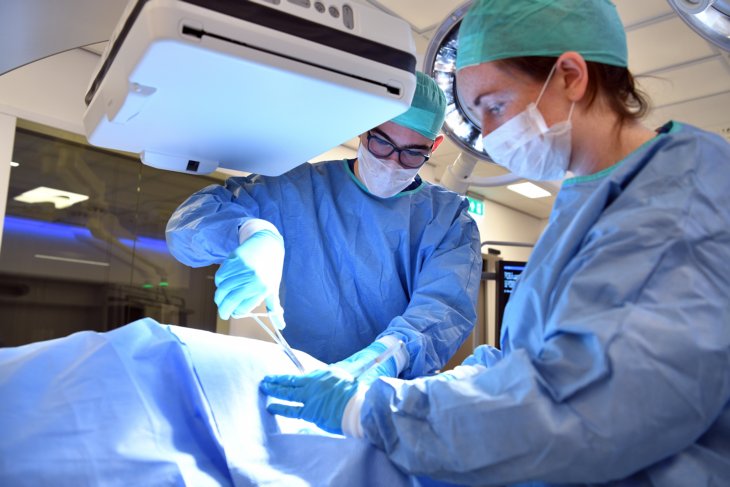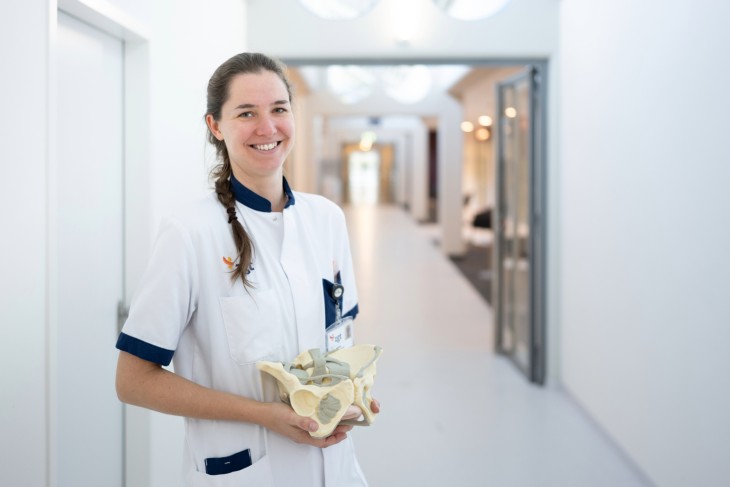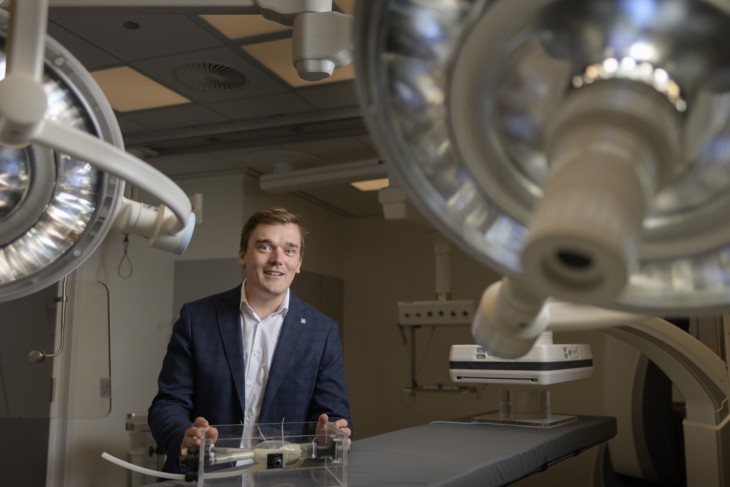Personalised care
AI allows for the rapid and highly accurate analysis of large amounts of data. At the IMPACT project, led by researchers at the University of Twente, this data is being used to create fully customised treatment plans. Imagine a system that integrates all medical information about a patient—from past scans to real-time analyses—within seconds, helping doctors make the best decisions. This not only increases the likelihood of successful treatments but also significantly reduces the risk of errors.
Working smarter with automation
One of the biggest challenges in healthcare is the heavy workload for medical professionals. This is where the ASSIST project comes into play, developing technology to automate routine tasks. For instance, in image-guided therapies, AI can automatically select and combine the correct images, providing doctors with a comprehensive overview at a glance. This reduces cognitive strain and allows them to focus entirely on what truly matters—the patient.
A concrete example is the use of AI-driven robots to produce accurate ultrasound images. This process, which normally requires significant manual effort, becomes faster and more reliable thanks to AI precision. The result? Quicker diagnoses and shorter waiting times for patients.
Innovation in action
AI’s power extends far beyond assistance. The CathBot platform combines robotics and AI to support doctors during cardiovascular procedures. This system uses real-time MRI images to guide the physician with precision that would otherwise be impossible. As a result, procedures are safer and more efficient, saving both time and costs while reducing recovery times for patients.
Another groundbreaking example is the development of AI systems that enable autonomous navigation within the human body. These systems can calculate and follow the optimal route during surgery, even in the most complex environments such as the heart or brain. This reduces risks and provides surgeons with a valuable partner in the operating room.
The future of healthcare, today
AI is still in the early stages of its potential in healthcare. Projects like these demonstrate how smart technologies are not only making processes more efficient but also delivering better outcomes for patients. From faster diagnoses to more personalised treatments, the possibilities are expanding every day.
So, what does this mean for you? Shorter waiting times, more accurate care, and a system that fully adapts to your needs. The question is no longer whether AI will transform healthcare but how significant that impact will be. And that leaves us curious: how smart can your healthcare become?



